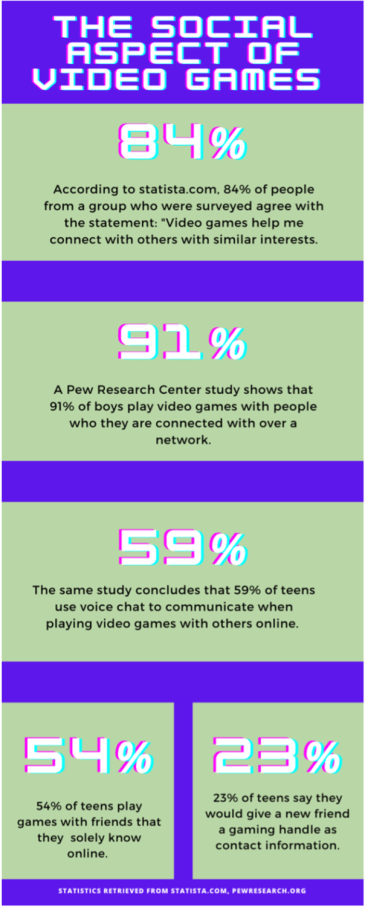No link between violent games and real-world violence
Video games are always in the spotlight when it comes to crime and misbehaviour by young people who play them. But can they really be blamed for violence?
For as long as I can remember, video games have been a great outlet for me to sit down and unwind after a long day, or to forget about my worries.
Whether violent or not, they are often useful to help me destress, or make a bad day better again – I’m sure many others can attest to that.
In the 21st century, you would be hard pressed to find a child or teenager who does not play video games of some sort.
Whether it be console games, computer games, or phone games, they’ve all become a huge part of our society.
But when it comes to situations where a child or teenager disobeys the law, or extreme circumstances where terrible crimes are committed, video games often come under fire.
Why does this happen?
The mass shooting at Columbine High School is a prominent early example of video games being brought to the forefront as a potential contributor to a crime.
On April 20, 1999, two seniors from Columbine – Eric Harris and Dylan Klebold – entered the school equipped with firearms, shooting and killing 12 students and one teacher, before taking their own lives.
This was the worst high school shooting in the United States up until this point, and it’s still considered one of the most horrifying events in American history.
 Given the two boys did not survive the event, it’s difficult to understand what truly sparked their violent rampage.
Given the two boys did not survive the event, it’s difficult to understand what truly sparked their violent rampage.
But video games have always been part of that conversation, with the boys reportedly having been big fans of games like Doom and Quake, which were very popular in the late ‘90s.
It’s easy to blame the media that the offender is influenced by; even former President of the United States Donald Trump targeted games, stating “it is too easy today for troubled youth to surround themselves with a culture that celebrates violence.”
It is common now to claim violent games incite these real world acts, but whether they are even a factor is a topic of contention among psychologists and educators.
Psychology teacher Jordan Patane, who is a gamer himself, says there are other things that should be focused on.
“Those who do not understand something like technology, will always find a way to correlate it with negative aspects of society,” he says.
“It is easier to find blame in something else than it is to acknowledge that there may be some sort of developmental or mental issue that needs to be addressed which comes from the negative stigma surrounding mental health.”
In cases where video games seem to be linked to crime and violence, not enough people consider that games could have a positive impact on the mental state of young people.
As with any leisure activity, video games are an outlet. Patane points to the social aspect of video games and the positive impact this can have on gamers.
“Video games provide an additional social environment that some young people may not have in real life,” he says.
“Many young people who find it hard to communicate or make friends in real life are given a place where they can be social with people who are similar and have similar interests to them.”
The reality is that there are often terrible circumstances in a young person’s life that may cause them to think, feel, or act a certain way.
If these young people use video games to distract them from the bad things happening in their life, it’s easy for someone to blame games for mental health issues, rather than the actual sources of trauma.
“Violent behaviour stems more from one’s surrounding and upbringing than it does from a leisure activity like gaming,” Patane says.
“In many cases, young people use video games as a way to vent their frustrations, in a way that they would not be able to in normal everyday environments.”
It’s too common for video games to be presented as a reason for poor mental health, but other factors in a young person’s life need to be acknowledged – along with findings showing the immense benefits of video games.













